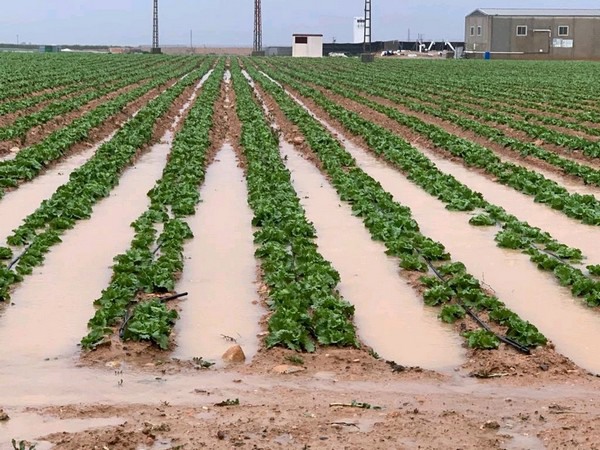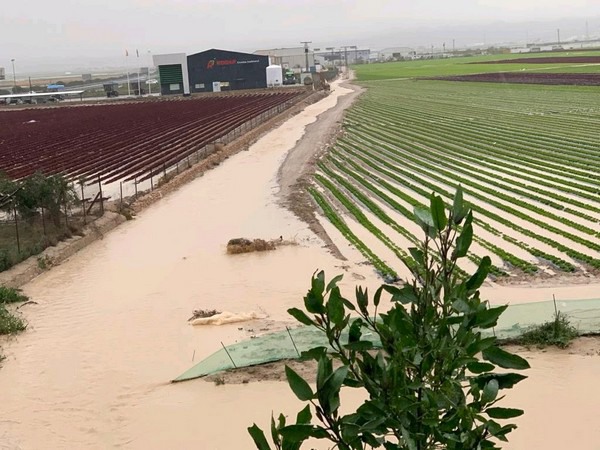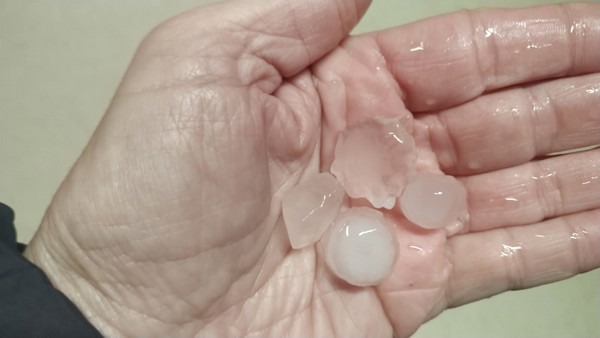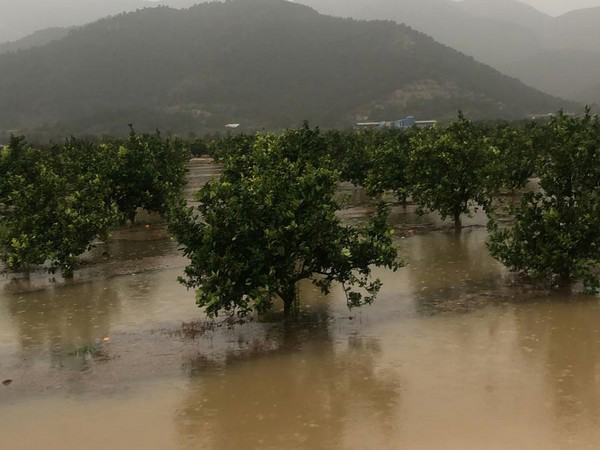Many vegetable fields in the Spanish Region of Murcia have been flooded after more than two days of intense rainfall.

Photo: Proexport
The abundant water covering part of the leafy vegetable crops, as well as the broccoli, cauliflower and artichoke fields, is making it difficult to carry out the harvesting tasks. For many producers, it will be impossible to enter the fields in the next few days, so delays in harvests and shipments are expected.

Photo: Proexport
The intense cold and the cloudy days are slowing down the vegetative growth, which is taking a toll on the supply. This is significant, taking into account that Murcia is the main producer for this type of vegetables in Europe during the winter months. Broccoli and cauliflower prices are the ones that have risen the most so far since the temperatures started falling.

Photo: Proexport
It will take a few days before the fields are accessible again and it becomes possible to assess the impact of the crop delays and the possible effects on the quality of each crop. Exporters may find it very challenging to meet their orders in the open market, or even to fulfill previously established programs with their customers.
Such damages are not being recorded in the case of greenhouse crops, but there is excess moisture and the low temperatures also have an impact.

Photo: Proexport
The Association of Producers-Exporters of Fruits and Vegetables of the Region of Murcia, Proexport, recommends customers and their usual suppliers to communicate and to monitor the situation in order to adapt the orders, prices and logistics to it.
Floods and hail worsen the damage in the Region of Valencia
Storm Gloria is translating into a series of extremely severe climatic accidents that are having a huge impact on citrus fruits, seasonal vegetables and agricultural infrastructure, as reported by the Valencian Association of Agricultural Producers (AVA-ASAJA). On Sunday and Monday, producers suffered damage due to strong gusts of wind and low temperatures, while on Tuesday, the floods and, to a lesser extent, the hail storms have made things worse.

The most affected crop by far are the citrus fruits that had yet to be harvested in this second half of the campaign, which has been marked by high prices at origin due to the decline in the production. The massive amount of rainfall in the coastal regions of the Region of Valencia has flooded entire orange and mandarin fields, especially in the areas affected by river overflows. This excess water threatens to aggravate the loss of crops that had already been caused by the wind and frosts, since, depending on the weather over the next few weeks, it could cause root asphyxiation problems, rot, the appearance of fungi or physiopathies in the skin of the fruits.
As for vegetables, there are many fields that have been completely flooded and will suffer losses of up to 100% of the production. Even in plots where potatoes and onions were recently planted, growers will be forced to replant. Salinity problems are also expected in farms near the sea. The list of infrastructures affected by the wind and floods includes roads, greenhouses, drip irrigation equipment or crop protection meshes.

The impact of hail storms is more localized, specifically in the county of La Safor, where there has been citrus damage that will become more visible within a few days. In other counties, such as Camp de Túria and L'Horta, the hail was accompanied by a lot of water and did not reach a large enough size to cause damage to agricultural productions.
The value of the damages could amount to several tens of millions of Euro, since the storm is still underway and many producers have not even been able to access their plots.
